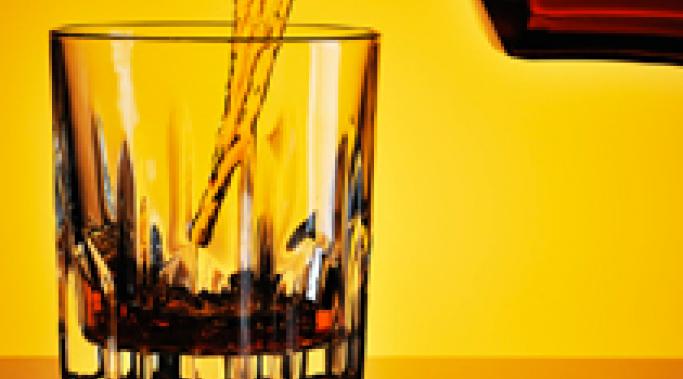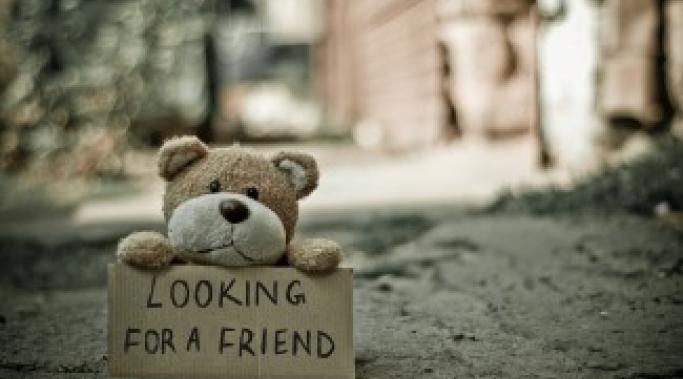Blogs
I recently returned from a trip to Quebec, where I learned alcoholism symptoms should not vary by culture. Sadly, they do. In the United States, having a drink in the morning is called an eye-opener and is one of the CAGE Test symptoms of alcoholism. Even WebMD lists it as a sign of a drinking problem. In Quebec, a brunch cocktail such as a mimosa or a bloody Caesar is normal. I even posted to my Facebook page that I had no clue how Canadians diagnose alcoholism because it seemed like everyone drank like fish. Interestingly enough, the alcoholism rate is higher in the U.S. than it is in Canada--but is that because of culture? There needs to be a clearly defined international standard for alcoholism symptoms--not one that seems to vary according to where you are.
It's important to know how to manage your child's problem behaviors caused by mental illness when you're not there. When your child struggles with mental illness, going into public can be terrifying. More terrifying is wondering what your child is doing in public when you're not there (Parenting Children with Behavior Problems). One of my son's diagnoses is attention-deficit/hyperactivity disorder (ADHD). I'll discuss more specifics about parenting children with ADHD throughout March, but for now, just know that ADHD sometimes makes children socially awkward and they display problem behaviors that you need to manage even when you're not there.
Stop comparing yourself to others, because when you do, you are letting mental health stigma affect your self-esteem. The only person who it is fair to compare yourself to is you. Are you doing better today than you were yesterday? Have you improved in different ways from a year ago? Mental health stigma can make us compare ourselves to others who don't have a mental illness or peers who haven't been through the same things that we have (How to Stop Comparing Yourself to Others).
The benefits of dance movement therapy (DMT) during my eating disorder recovery can't be ignored. I have been a dancer all my life and, honestly, think dance is what saved this life of mine (Alternative Approaches to Mental Health Treatment). Shortly into my eating disorder recovery journey, I began working with a dance movement therapist. Having this experience made me realize how important movement, in particular, dance movement therapy, is for eating disorder recovery.
Supporting someone who suffers from bipolar disorder can be a difficult and challenging experience. Having lived with two people who suffer from some form of bipolar disorder, I’m only now starting to figure out how to help people with bipolar disorder. It’s taken years for me to understand how their ailment affects their way of thinking and how best to help them when they have emotionally intense episodes.
Addiction recovery isn't easy, but it can be much less difficult when you figure out which addiction recovery tools work best for you. Having recovery tools that you are familiar with and that you know work when you're struggling, is the key to successful addiction recovery (Coping Skills for Mental Health and Wellbeing). For me, there are several tools that I turn to when I am having a hard time or feeling down. I'd like to share the ones that work for me and then find out which addiction recovery tools work for you.
I do miss the voices in my head occasionally. Most people who hear voices in their head would give anything to get rid of this scary and disruptive symptom of schizophrenia and schizoaffective disorder (Auditory Hallucinations: What's It Like Hearing Voices?). I’m one of them. Yet sometimes I wish I could have an episode of hearing those voices in my head. Here’s why.
Wanting to get rid of anxiety is perfectly reasonable and very normal, but focusing on yourself to do that may not have crossed your mind. When we think of getting rid of anxiety our focus is on that anxiety. It is anxiety that is receiving our attention; unfortunately, what we pay attention to sticks around. It can be empowering and uplifting to shift your attention away from anxiety and onto something much better: you. To get rid of anxiety, focus on yourself.
I have bipolar disorder and self-harm urges. No, this doesn't mean my diagnosis is wrong, it just means that I happen to have a mental health issue outside of my bipolar diagnosis. But let me be clear: I deny my self-harm urges. Even though I want to hurt myself, I don't. But this hurts. If the only thing in the world that you wanted to do had to be denied, wouldn't it hurt you, too?
Apathy in depression is the feeling of indifference towards yourself, your life, and those around you (What are the Symptoms of Depression?). Apathy in depression is uncomfortable and disappointing because it makes what you once cared about seem unimportant. My love of being active and working hard has been replaced with a black hole that sucks up my emotions and desires, making me a mess of I-don’t-cares and shoulder shrugs. I fear my apathy in depression and I resent the challenges that indifference creates.










I believe she will only be able to rid herself of her demons, and hopefully her BPD as well, when she's ready to confront the abuse of her father. If she can put the blame where it belongs, she may stop projecting that victim/perpetrator cycle on the present men in her life. These demons are a metaphor for the purgatory she has created for herself. That reality has consequences in the real world, but it need not be real in the tangible sense. Exorcising her demons will require the expenditure of real physical energy and probably the destruction of aspects of her personality. If this ever happens, and it's possible but not probable, then these demons will evaporate. They are only as real as one's personality is real. In short, reality is not the question, it's what you make of the things you feel to be real.